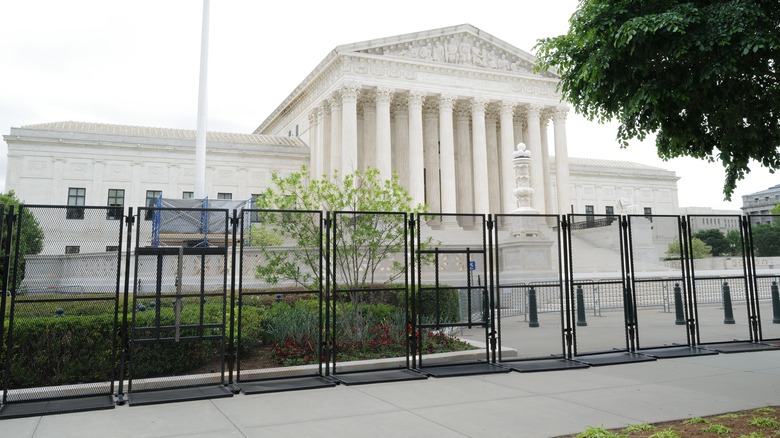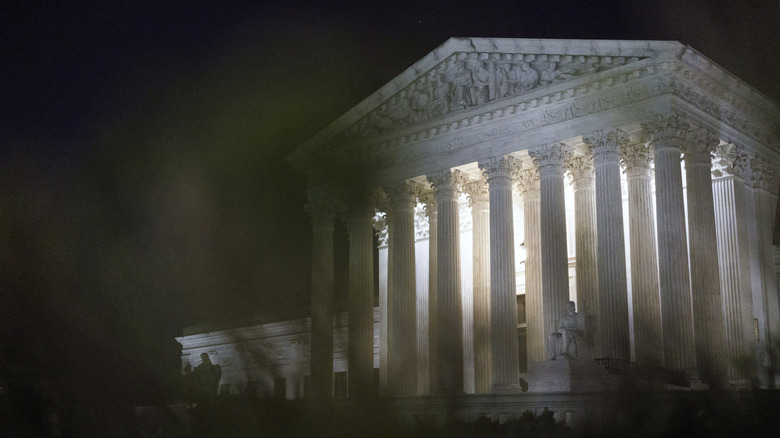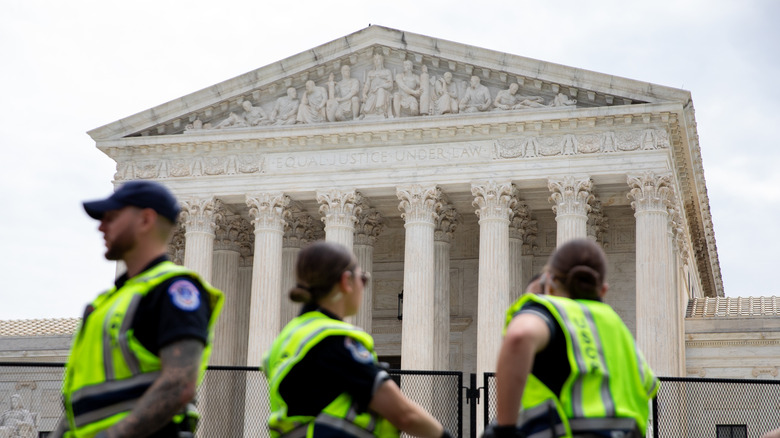The 13 States With Laws That Take Effect Automatically Now That Roe V. Wade Was Overturned
On June 24, the United States Supreme Court overturned Roe v. Wade, a ruling that had stood for nearly half a century protecting a women's liberty to have an abortion. This ruling creates an instantaneous change in how and where abortions can be performed. According to the Guttmacher Institute, more than 20 states have laws in place that either ban or place strict limitations on abortions.
According to CNBC, some states have so-called "trigger laws" on the books. This means they were passed before Roe v. Wade was overturned, but can become law now that it has. States with trigger laws include Idaho, Wyoming, Utah, North Dakota, South Dakota, Missouri, Louisiana, Kentucky, and Tennessee. Four other states — Texas, Oklahoma, Arkansas, and Mississippi — have multiple laws that ban abortions within their borders. According to The Washington Post, these trigger laws are likely to spring into effect within one month of the Supreme Court's decision.
How the trigger laws work
According to The Washington Post, each one of the trigger laws, sometimes called trigger bans, functions a little bit differently and can take effect at different times, depending on how they were set up. Some states only require a specific state official to sign off on the ban for them to be put into action now that Roe v. Wade has been overturned, something that can happen in just a matter of minutes. Arkansas is one state where this is the case, and their ban requires the state attorney general to certify the decision.
Other states' trigger laws have built-in waiting periods that stipulate that they only go into effect a certain amount of time after the Supreme Court's decision. Texas and Utah are two states where this is the case, with both of their laws set to go into effect 30 days after Roe v. Wade was overturned. Other states, including South Dakota and Louisiana, have trigger bans ready to go that don't require any waiting period or official sign-off before becoming law.
Other states with current bans or limitations on abortion
Some states have laws banning abortions that pre-date the Supreme Court's 1973 ruling on Roe v. Wade. These states are Arizona, Wisconsin, Michigan, West Virginia, and Alabama, per CNBC. It's not entirely clear how these states will handle the situation moving forward, though it's expected that a Republican-led state like West Virginia, which never repealed its original Roe v. Wade ban and recently added an amendment to the state constitution that West Virginians do not have a right to get an abortion, will implement bans (via The Washington Post).
Other states do not have full-out bans on abortions, but instead, have strict limitations on when during pregnancy the procedure can be performed. Georgia, South Carolina, Ohio, and Iowa have laws that ban abortions after six weeks. Critics of these laws argue that many women aren't even aware that they are pregnant until well after the six-week window in which abortions are allowed under those laws.


